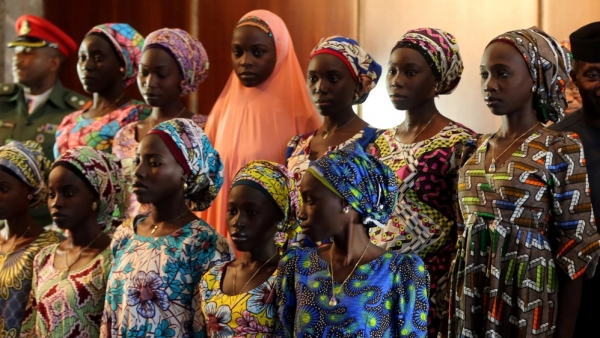The fighting between Boko Haram and the Nigerian government has continued now for over eight years. This conflict led to a serious crisis that has taken a heavy toll on its population, particularly on its youngest people. The extremist group has conducted suicide bombings, assaults and kidnappings, targeting civilians in villages, schools, churches and mosques. Having made associations with other extremist groups around the world, its political aim is to establish an Islamic state in the country. The majority of violence has happened in the northeast of Nigeria, where Boko Haram is based. Despite the army having regained control of many territories from Boko Haram in the last few years, today the north-easternmost part of Nigeria is still under the threat from the extremist group. In particular risk is the region of Borno, confining with Niger, Chad and Cameroon.
Over the last eight years, at least 20,000 people have been killed, with thousands of others heavily injured and about 2.6 million displaced as a consequence of Boko Haram violence. In March 2016, the governor of Borno Kashim Shettima said that about 950,000 private homes in the region had been destroyed or damaged. Municipal buildings and electricity, water and health care infrastructures have also been ruined.
In addition to violent incidents and bomb attacks, Boko Haram has regularly been involved in abductions. The kidnapping of 276 schoolgirls from the city of Chibok in 2014 remains the most notorious act perpetrated by the extremist group. The event led to international condemnation, but today, three years later, about 120 girls are still missing. According to the United Nations International Children's Emergency Fund (UNICEF)’s latest report on Nigeria, the abduction practice was widespread before the Chibok kidnapping and continues to this day. Boko Haram has forced thousands of girls and boys to become sexual slaves or militants. In the first three months of 2017 alone, 27 children have known to have been used in suicide bomb attacks in northeast Nigeria. As a consequence, children are often thought to be carriers of explosives. Their social reintegration is very difficult and communities are increasingly suspicious of children who have been linked to Boko Haram.
To read more, visit:
http://www.aljazeera.com/indepth/interactive/2017/01/map-boko-haram-attacks-170116191820253.html
https://www.unicef.org/wcaro/nigeriaregionalcrisis/UNICEF_Silent_shame.pdf
http://www.aljazeera.com/news/2017/05/boko-harm-kills-nigerian-farmers-170515134702648.html
http://www.aljazeera.com/news/2017/04/rise-boko-haram-child-suicide-bombers-170412041301650.html




